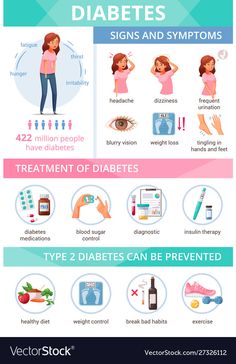Diabetes, a chronic condition that affects millions of people worldwide, requires careful management to prevent complications and maintain a good quality of life. With advances in medical science, various treatment options are now available to help people with diabetes manage their blood sugar levels effectively. This article explores the different approaches to diabetes treatment, including lifestyle changes, medications, and emerging therapies that promise to improve patient outcomes.
Understanding Diabetes
Diabetes occurs when the body is unable to produce enough insulin or properly use the insulin it produces, leading to elevated blood sugar levels. There are two main types of diabetes:
-
Type 1 Diabetes
- An autoimmune condition where the body attacks insulin-producing cells in the pancreas.
- Typically diagnosed in childhood or early adulthood.
- Requires lifelong insulin therapy.
-
Type 2 Diabetes
- More common and primarily related to lifestyle factors such as obesity and physical inactivity.
- The body becomes resistant to insulin or doesn’t produce enough.
- Often managed with lifestyle changes, oral medications, and, in some cases, insulin.
Lifestyle Changes for Managing Diabetes
-
Healthy Diet
- A balanced diet rich in vegetables, whole grains, lean proteins, and healthy fats is crucial for managing blood sugar levels.
- Monitoring carbohydrate intake helps to avoid spikes in blood sugar.
- Regular meal timing and portion control can further stabilize blood sugar levels.
-
Physical Activity
- Regular exercise improves insulin sensitivity and helps lower blood sugar levels.
- Activities such as walking, cycling, swimming, and strength training are recommended.
- Aim for at least 150 minutes of moderate-intensity exercise per week.
-
Weight Management
- Losing even a small amount of weight can significantly improve blood sugar control in people with type 2 diabetes.
- Combining diet and exercise is the most effective strategy for weight loss.
-
Stress Management
- Stress can raise blood sugar levels, so managing stress through practices like mindfulness, yoga, or meditation is important.
- Adequate sleep and relaxation techniques also contribute to better diabetes management.
Medications for Diabetes
-
Oral Medications
- Metformin: The most commonly prescribed medication for type 2 diabetes, it helps reduce glucose production in the liver and improves insulin sensitivity.
- Sulfonylureas: Stimulate the pancreas to produce more insulin.
- DPP-4 Inhibitors: Help reduce blood sugar levels by increasing insulin release and decreasing glucose production.
- SGLT2 Inhibitors: Prevent the kidneys from reabsorbing glucose, leading to its excretion through urine.
-
Insulin Therapy
- Required for all patients with type 1 diabetes and some with type 2 diabetes.
- Various forms of insulin (rapid-acting, short-acting, intermediate-acting, and long-acting) are used based on individual needs.
- Insulin can be administered through injections or an insulin pump.
-
GLP-1 Receptor Agonists
- These injectable medications help lower blood sugar by increasing insulin release, slowing gastric emptying, and reducing appetite.
- Often prescribed for type 2 diabetes and can aid in weight loss.
Emerging Therapies and Research
-
Continuous Glucose Monitoring (CGM)
- CGM devices provide real-time blood sugar readings, helping patients better manage their condition.
- These devices can alert users to dangerous highs or lows, allowing for prompt action.
-
Artificial Pancreas
- A system combining CGM with an insulin pump to automatically adjust insulin delivery based on blood sugar levels.
- Offers a more automated approach to managing diabetes, particularly for type 1 diabetes patients.
-
Stem Cell Research
- Researchers are exploring the potential of stem cell therapy to regenerate insulin-producing cells in the pancreas.
- Although still experimental, this approach holds promise for curing type 1 diabetes in the future.
-
Oral Insulin
- Ongoing research aims to develop a pill form of insulin, which could eliminate the need for injections.
- This would be a game-changer for diabetes treatment, improving patient compliance and comfort.
Preventing Complications
Effective diabetes management is essential to prevent complications such as heart disease, kidney damage, nerve damage, and vision problems. Regular check-ups with healthcare providers, monitoring blood sugar levels, and adhering to prescribed treatment plans are critical components of preventing these complications.
















